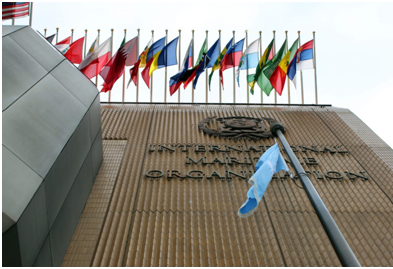
The paper has been submitted in conjunction with
China, Liberia, Republic of Korea, Singapore, the United Arab Emirates and the
ISO (International Standardisation Organisation).
Digitalisation
is becoming a crucial element as the maritime industry is working to
decarbonise, and the use of digital technologies can
significantly boost operational efficiency, resilience, sustainability and
innovation. In this regard, the IMO plays a pivotal role in promoting
digitalisation across the maritime sector. However, effective implementation of
digitalisation requires substantial coordination among various stakeholders and
digital initiatives.
To maximise the
benefits, a digitalisation strategy by the
IMO must aim to define a clear roadmap for the strategic direction of the
organisation, enhancing the standardisation, harmonisation and integration
of digital solutions.
In a recent survey conducted by BIMCO, IAPH, IFSMA and
FONASBA, a key finding showed that 40%
of the shipping industry is unaware of the IMO resolution mandating the use of
a “maritime single window” for data exchange from 1 January 2024. Another
result was that only 36% of port calls offered fully electronic exchange of
data. Both findings illustrate the current dilemma of the maritime industry:
when to invest and implement a given solution….
The examples above emphasise the proactive role of the IMO in maritime digitalisation. Many
emerging technologies require a coordinated approach within the IMO and between
the IMO and other intergovernmental organisations (such as the International
Hydrographic Organization and The International Association of Marine Aids to
Navigation and Lighthouse Authorities). Absence of such coordination could put
a limitation on several benefits.
An
overarching IMO strategy on digitalisation could, on the other hand, offer the
maritime industry numerous benefits.
These include promoting the adoption of electronic formats in various reporting
requirements, enhancing data harmonisation, and ensuring system
interoperability across digital systems and platforms
Therefore,
a digitalisation strategy from the IMO will not only send a strong signal on
the priorities of the organisation, but also signal the importance of
digitalisation externally and among, industry stakeholders. By doing so, the IMO can make sure that all
stakeholders, including those outside the organisation, are aware of the
strategy and aligned with its digital agenda, promoting greater collaboration
among stakeholders, wider adoption of standards, and more effective
implementation of digital solutions as a result. Consequently, it will represent a major step towards
increasing efficiency, safety, and sustainability of the maritime industry